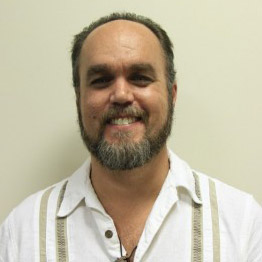 Let me start with a caveat. I don’t think kids should use drugs of any kind, including alcohol, tobacco, and marijuana. The high school kids I met last year while teaching conflict resolution often made references to smoking pot, and several times they appeared to be high.
Let me start with a caveat. I don’t think kids should use drugs of any kind, including alcohol, tobacco, and marijuana. The high school kids I met last year while teaching conflict resolution often made references to smoking pot, and several times they appeared to be high.
The consequences of marijuana use, especially for young people, are heavily debated. Searching for good data about the health effects of cannabis is made difficult by groups who advocate for one position or the other. My own ideas about what pot can do are based on some personal experience and a lot of observation, and it just doesn’t seem like a good idea for teenagers to use it. They have enough problems with hormones and brain development to add illicit substances to the mix. But…
One thing is pretty clear. The current policies, stretching at least back to Nixon’s 1971 declaration of War on Drugs have been a disaster for the country, particularly for young people and minorities. A paper published in Crime & Delinquency last year explores arrest and usage rates and, for the first time,estimates the probabilities of being arrested for marijuana, and use that to measure the “intensity of enforcement against users.”
Up until 1991 your chances of getting arrested for pot were similar for all ages and races, but since then there has been a steady climb in arrests of certain groups. Today “[a]rrest rates among current marijuana users are disproportionately high for adolescents, Blacks, and males.”
The overall rates of arrest per capita for possession “have increased threefold over the last 20 years and now constitute the largest single arrest offense category” [emphasis added]. This is simply astounding to consider, especially when we take into account the effects of a drug charge on education and employability, and such affects greater chance to land on Black youth. Keep in mind that all of this has happened even though usage rates have essentially remained the same for decades.
If you still think it is worth it, consider the sheer cost of enforcement in money, time, and resources. A recent report issued by Drug Policy Alliance should give us pause. It calculated the hours spent by the New York Police Department under Mayor Bloomberg’s reign. From 2002 to 2012 the police used “approximately one million hours of police officer time to make 440,000 marijuana possession arrests.” That is one million hours, hours when the police could have been chasing real crooks and solving (and preventing) real crimes.
A recent Wall Street Journal article by Gary S. Becker and Kevin M. Murphy asks if we have lost the war on drugs. Becker is a recipient of the Nobel Prize in economics, and both he and Murphy are senior fellows of Stanford’s Hoover Institution. Their conclusion is yes, we have indeed lost the war, we have in fact never been close to winning it, and we never will. Besides the cost mentioned already mentioned to citizens here, we have exported the war around the world. In Mexico alone more than 50,000 people have been killed since 2008 as the Mexican government took up its own war on drugs. The flow of illegal drugs through that country is directly linked to U.S. prohibition and use.
So, what do we do? Should we simply give up? One possible strategy has already been adopted by Portugal. In both the Wall Street Journal article and in a 2011 AFP story the success of decriminalization, which began in 2001, is lauded as an example of another way forward. Rates of drug use have dropped, including among adolescents, and treatment for abuse and addiction have become the norm.
The U.S. should refocus its energies and resources on treatment of those suffering from addiction, and leave other users alone to make their own decisions. Just as with alcohol and tobacco, use of drugs can become a status issue for juveniles instead of a criminal offense. Strategies can be developed that address the issue specifically for teens, and come from a community base of care instead of a policing base of criminalization.
























